All about Goldtop color:
The Gibson guitar in “Goldtop” color has been manufactured in different models and series over the years. However, one of the most emblematic models with Goldtop finish is the Gibson Les Paul Standard.
Production of the Gibson Les Paul Standard with Goldtop finish began in 1952 and continued until 1958. During this period, Les Paul Standards featured a maple top in Goldtop finish and mahogany body. These guitars are highly valued by collectors and vintage guitar aficionados.
After 1958, Gibson stopped producing Les Paul Standard with Goldtop finish and started using other finishes such as Sunburst. However, in subsequent years, Gibson has released reissues and Goldtop versions of the Les Paul Standard, including limited production models.
During these years there may be differences in the color shades of the Goldtop finish of Gibson Les Pauls manufactured during these years. This is due to several factors, such as the manufacturing process, the materials used and the natural aging of the guitar.
Differences between Aged goldtop and goldtop:
During the early years of production of Les Paul Standard guitars with Goldtop finish (1952-1958), there were variations in color tone due to differences in the application of the varnish and the selection of the maple used in the top. Some Goldtop guitars had a lighter and brighter tone, while others could be more dark and tan or have a yellowish hue (aged).
In addition, the passage of time, exposure to light and other environmental factors can affect the tone of the Goldtop finish on a vintage guitar. Many Gibson Les Paul Standards made in that era have acquired a wear and aging pattern known as “crazing” that can affect the appearance of the original color.
It is important to note that, in modern reissues and current Goldtop versions, Gibson has tried to replicate the tones and characteristics of the original 1950s models. However, there may always be slight variations in color due to different manufacturing processes and the effects of artificial aging.
With the new Aged GoldTop color we wanted to replicate the more toasted and caramel goldtop tone, thus completing Gibson’s full range of goldtop colors.
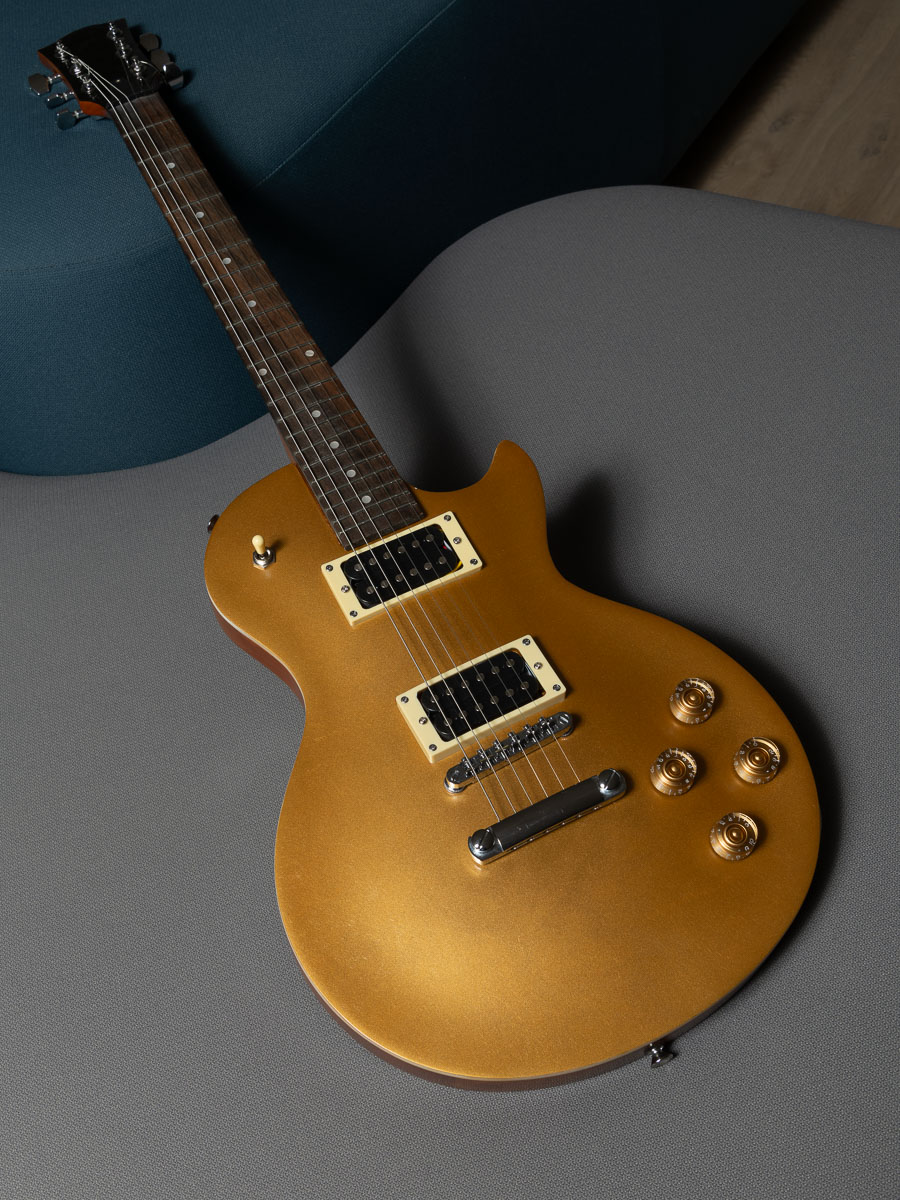
Application guide:
- We start applying the color once the guitar has been dabbed with Nitorlack Primer..
- When we start the painting work, the pores must be closed and the grain must not be marked.
- Apply the product either by spray or spray gun to a distance of 25 cm..
- When applying we must follow a pattern of application, first horizontal and then vertical, applying the paint uniformly.
- Apply several coats, letting dry between them about 24 hours and sanding between them, to remove any remaining impurities.
- This work will be finished when the surface is completely smooth and free of imperfections.
Frequently Asked Questions:
How many sprays do I need to varnish a guitar?
– If the surface is well covered and it is not your first painting project, you can do it with a spray, although you will not apply many coats. However if you are not an expert we recommend using 2 sprays for an optimal finish.
What temperature should the guitar be at during and after the process?
– It is recommended to do it in a place whose temperature is between 15 and 25 degrees. If the painting or varnishing process is done in very hot or cold conditions, the final result may not be good.
Where should I carry out the process?
A clean site will be essential to prevent dirt or dust particles from adhering to the surface.
Is sanding between coats mandatory?
It is not something you should always do, but it is advisable to remove any imperfections that remain in the paint at the end of each coat, as well as any particles that may adhere.

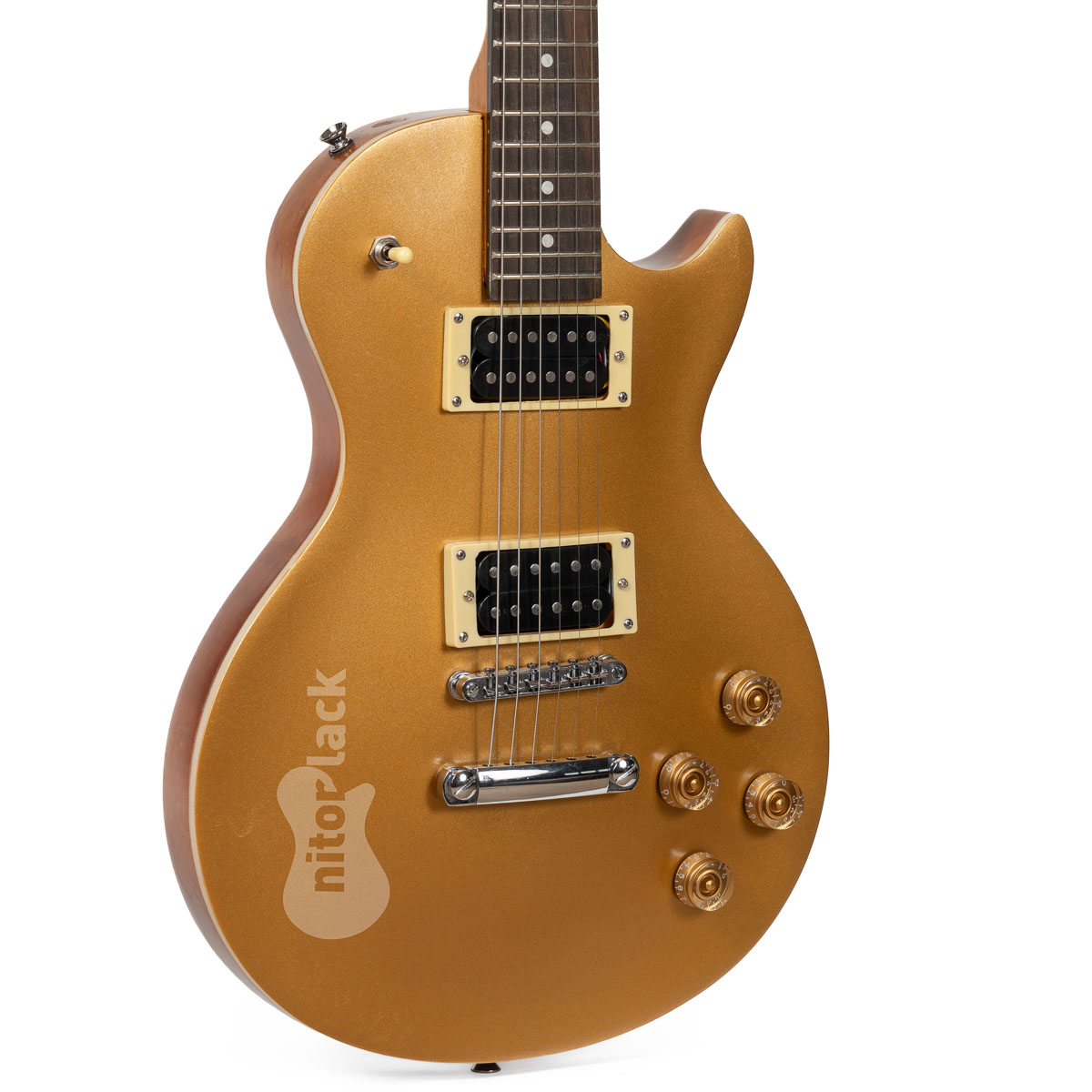

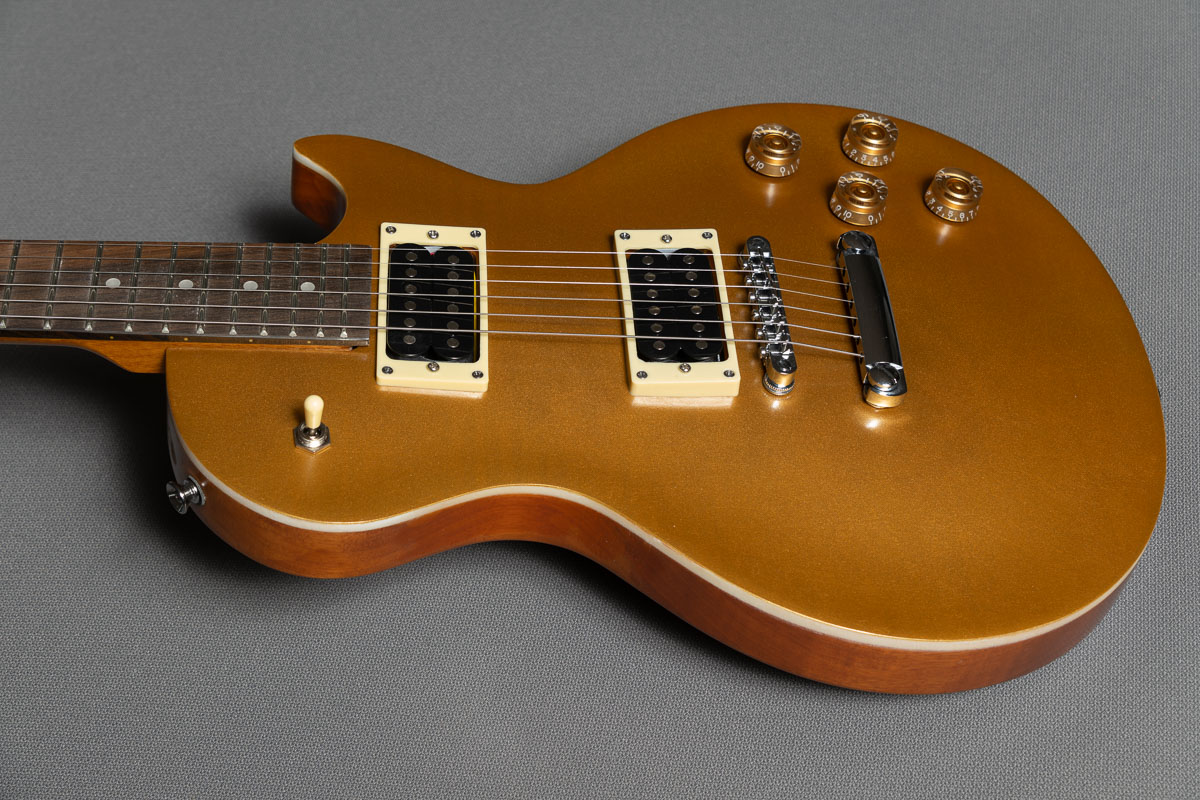
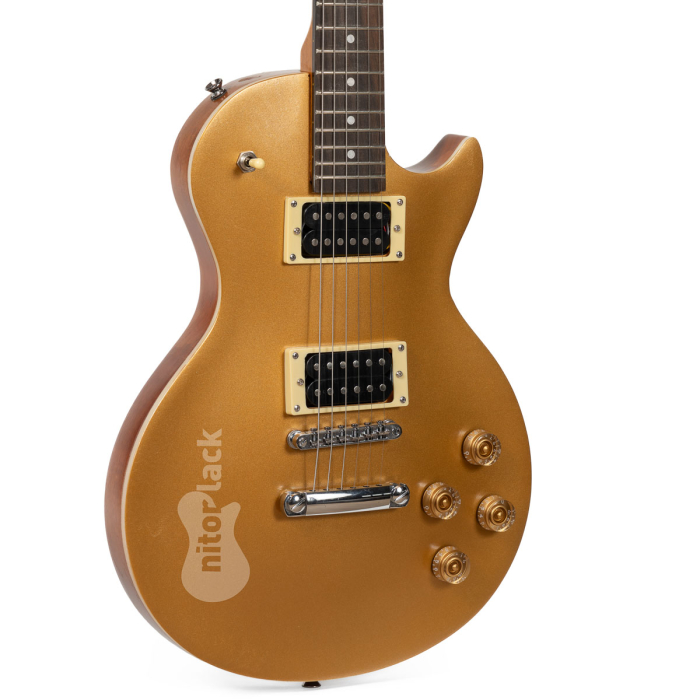
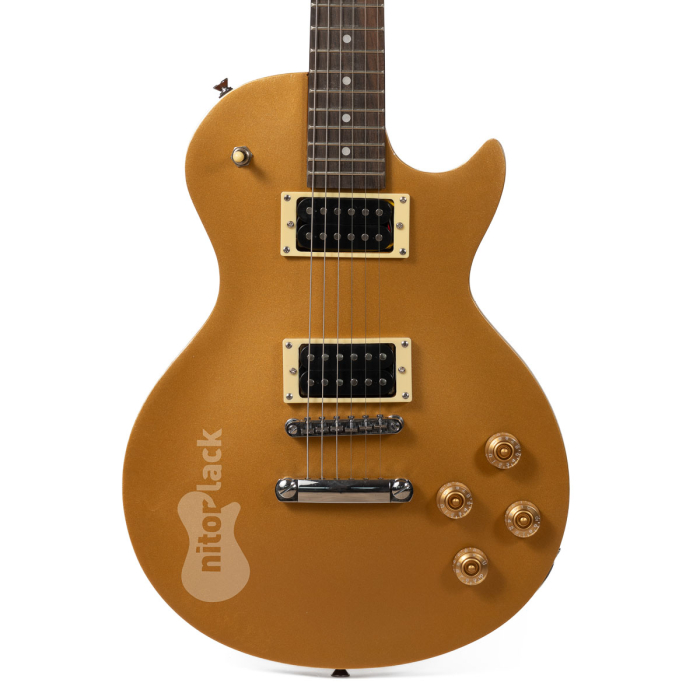
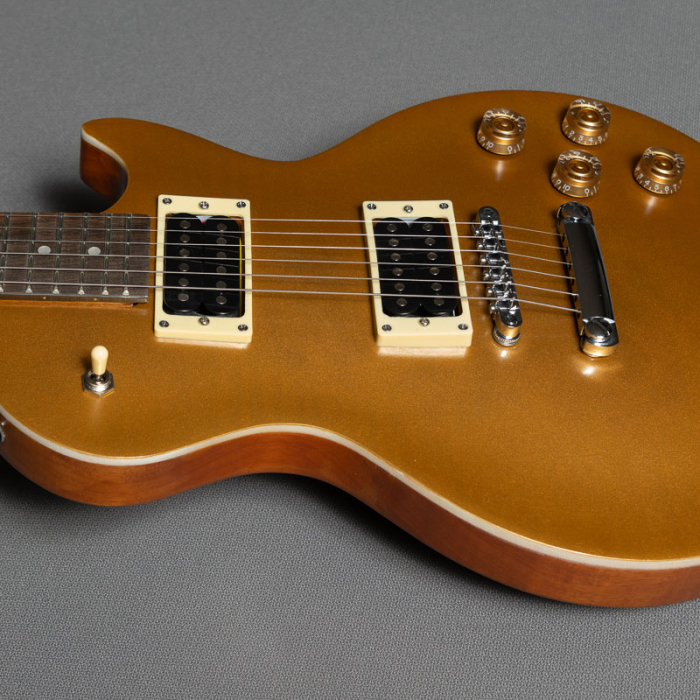
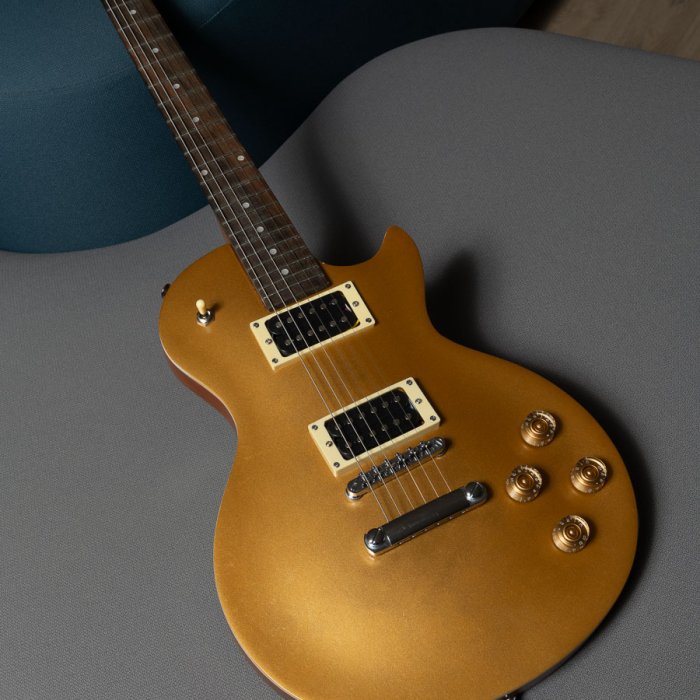
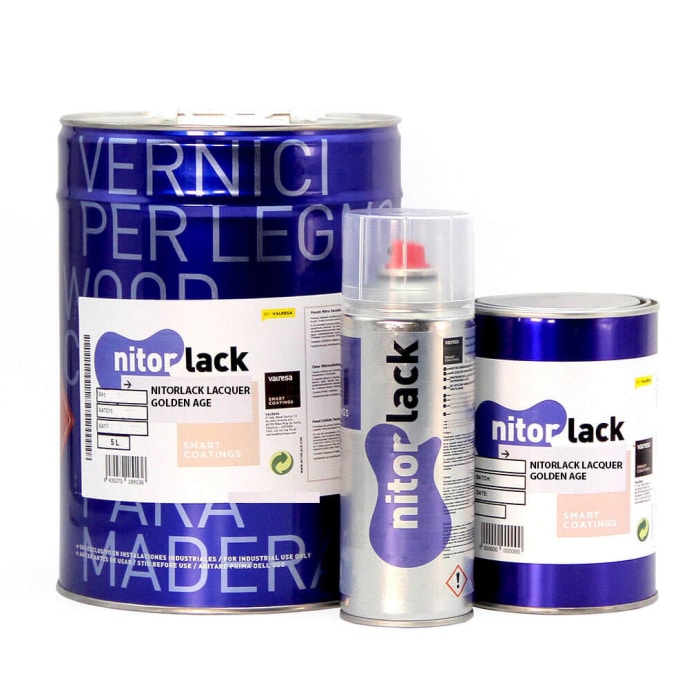
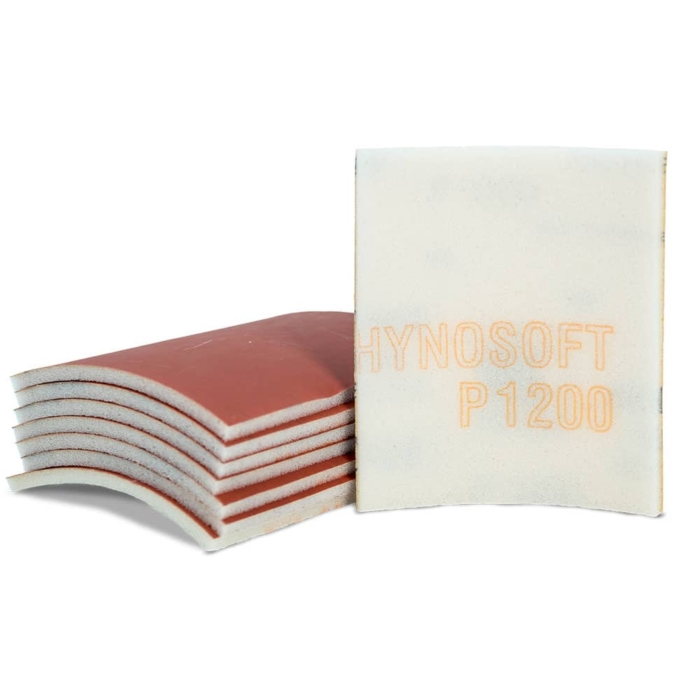
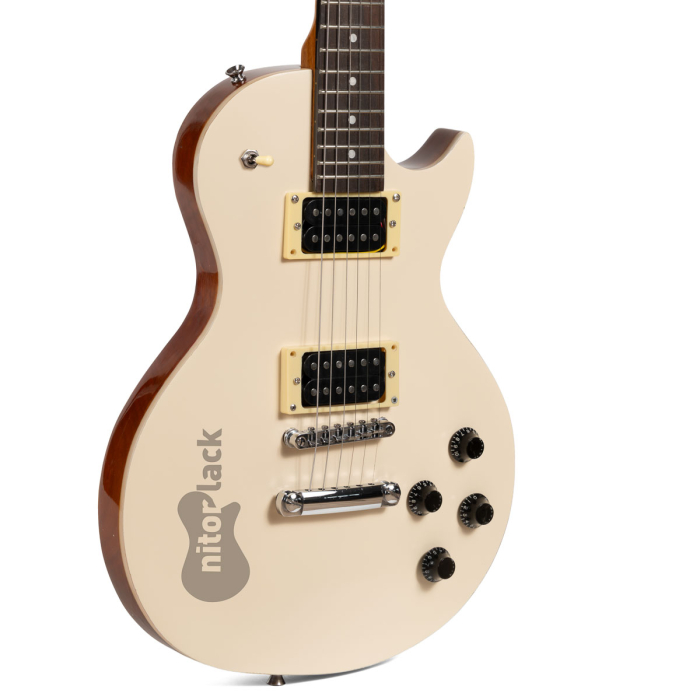
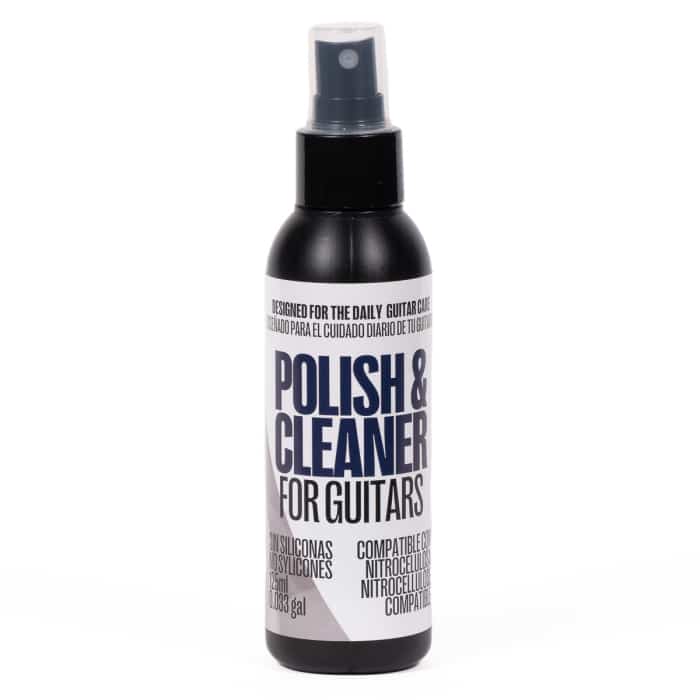
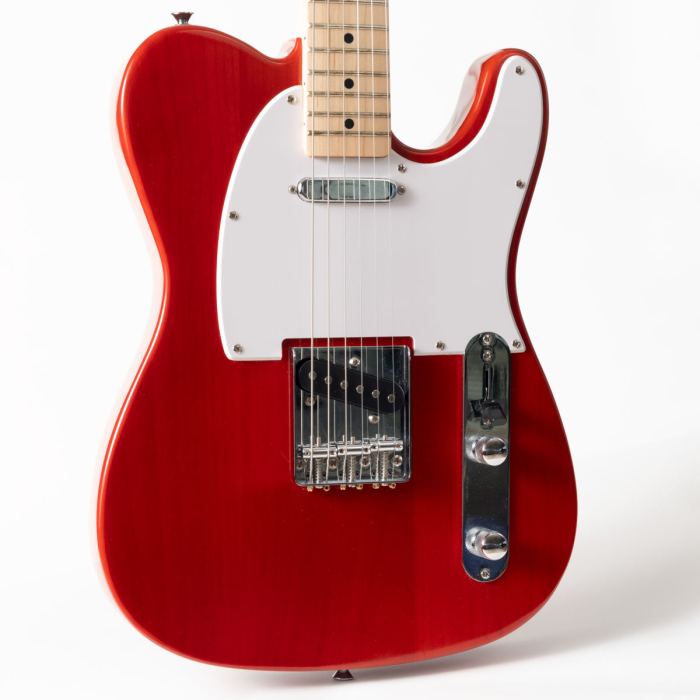
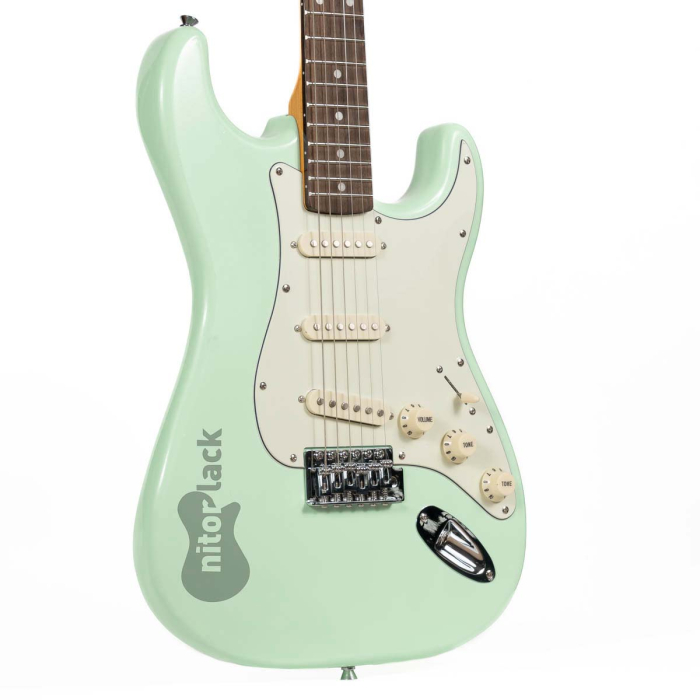
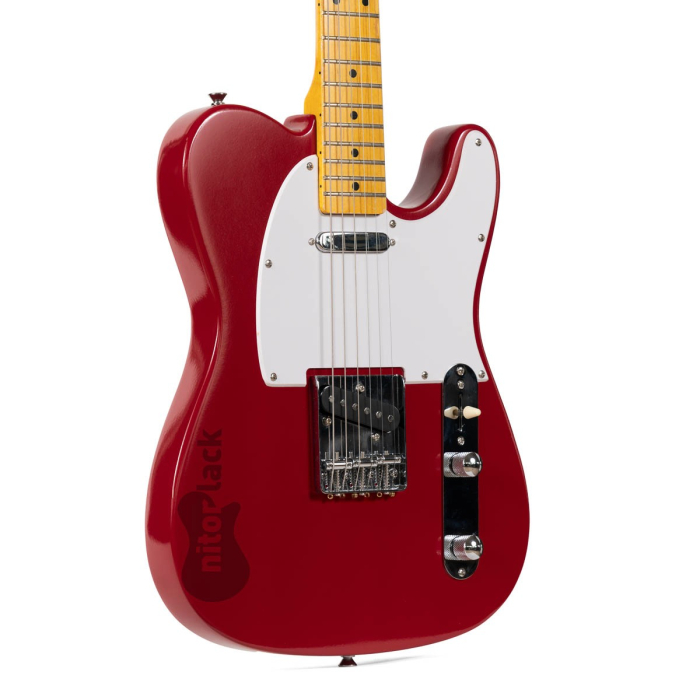
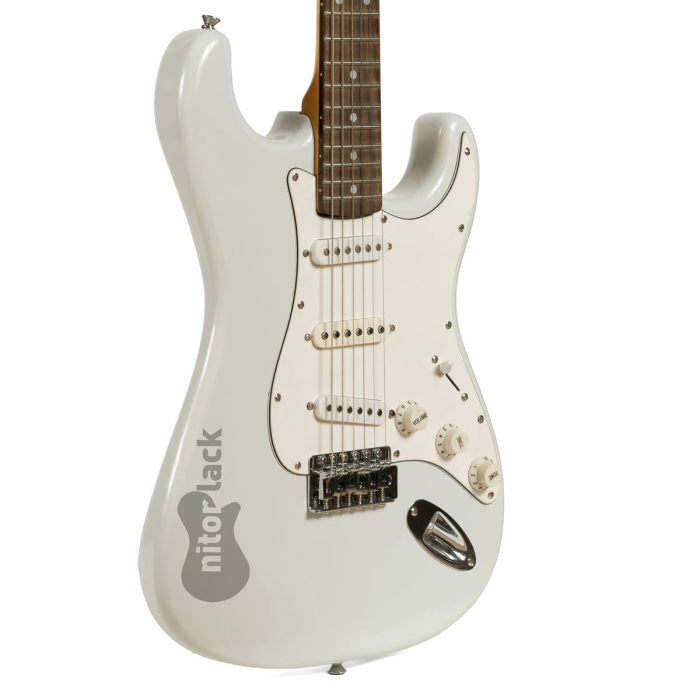
Stefan Vergeiner (verified owner) –
Un muy buen color.
Markus Hein (verified owner) –
Filipe M. (verified owner) –
Color is a little too dark for my taste especially when you add lacquer golden age finish on top. But that’s the purpose of this aged finish, looks more brown than usual goldtop.